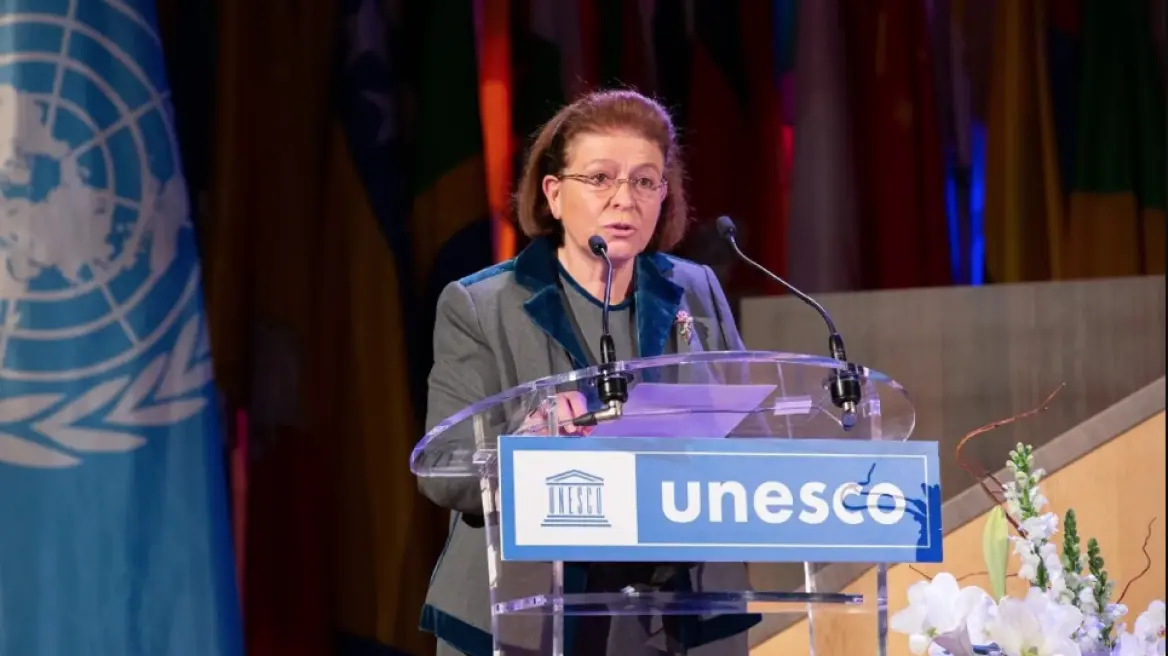The opportunity to take another step forward in promoting energy cooperation in the Eastern Mediterranean, but above all to send a strong message on the need to stabilize the situation in Syria on the basis of international legitimacy and the formation of an inclusive government that respects the rights of all citizens and avoids provocations against neighboring states, is offered by the Tripartite Summit between Greece and Egypt-Cyprus meeting tomorrow in Cairo.
The context and developments in Syria naturally lend particular interest to the meeting that the Kyriakos Mitsotakis, Al Sisi and Christodoulides, in the context of a format which has been functioning well over the last decade and is an institution which, in combination with the other multilateral formats in which Athens and Nicosia participate, contributes to cooperation and stability in the critical region of the Eastern Mediterranean.
As a matter of fact, the focus of the Summit is on developments in Syria, where Athens and Nicosia are following with particular attention the moves of the new “revolutionary” regime in terms of both the restoration of democracy and the rule of law in the country, the protection of minorities and, above all, the way in which Turkey’s strong influence is attempted to be used to overturn balances and impose deadlocks. Ankara’s plan to promote a Turkish-Syrian Memorandum along the lines of the Turkish-Libya Memorandum, which will hijack part of the Cypriot EEZ and attempt to create a negotiating fait accompli in future delimitation agreements in the Eastern Mediterranean, is a red line for Greece and Cyprus, which have already raised the issue at the highest European level.
It is obvious that at the European level, the two countries will not accept unconditional lifting of sanctions and provision of aid to Syria, which is necessary for the survival of the new regime, nor will they accept international recognition of the “rebel government” without commitments that it will not attempt any fait accompli against neighboring states, much less against EU member states.
In Cairo, Mitsotakis and Christodoulides will find sympathetic ears expressing these concerns to Al Sisi, as Egypt is particularly wary of developments in Syria. The strong influence of the Muslim Brotherhood and political Islam in Syria with the blessing of Erdogan, who has never hidden his ties to the organization, is the big red line for Cairo and President Al-Sisi, for whom the Muslim Brotherhood’s activities pose a mortal threat to his regime and his country.
The bloodless uprising in Syria and the advance into Damascus and overthrow of Assad raises fears that it will encourage and inspire organizations of political Islam still active in Egypt and in the Gulf countries. The UAE and Saudi Arabia, following other tactics, are trying to reach out to Al Jolani and manipulate developments to prevent the creation of a regime in an important Arab state linked to the Muslim Brotherhood and fully controlled by the Qatar-Turkey axis, leading to a revival of the confrontation that led to the intra-Arab conflict a few years ago.
Qairo, which is already under great pressure from the war in Gaza as it borders the Gaza Strip and Israel and has the special role of an Arab country that has first restored its relations with Israel, cannot bear the creation of a new state actor in the region that will be along the lines of the Muslim Brotherhood and controlled by Turkey. In Cairo, Turkey’s great opening in the Horn of Africa and the relationship it is developing with Somalia, Sudan and Ethiopia, with which Egypt is in conflict because of the large dam on the Nile, which will deprive it of the main source of “life” for the country’s economy, has been viewed with particular suspicion.
The Mitsotakis-Al Sisi-Christodoulides talks will also raise the scenarios regarding Turkey’s attempt to exploit the situation in order to cause a fait accompli in the Eastern Mediterranean demarcation chapter.
Egypt has written to the UN denouncing the Turkish-Cypriot Memorandum, rejecting Turkey’s “proposals” for a Turkish-Egyptian delimitation agreement which, in fact, by hijacking a large part of the Greek and Cypriot continental shelf, would give a significant additional part of the continental shelf to Egypt. Also, in the recent Cairo-Tripoli confrontation over the delimitation of the EEZ, Egypt rejected the delimitation line which was identical to the illegal Turkish-Cypriot Memorandum. Moreover, with the Greek-Egyptian partial EEZ delimitation agreement, Athens and Cairo drove a wedge into the Turcolibian EEZ, despite the fact that the area east of the 28th meridian has been left out of the delimitation, which theoretically leaves open the possibility of a future comprehensive settlement and a new negative fait accompli.
The Greece-Egypt-Cyprus Trilateral, consistently in the Joint Communiqué, refers to respect for the territorial integrity and sovereign rights of the countries, but also to the need to respect the Law of the Sea in the delimitations in the Eastern Mediterranean and this will be a clear message from three powerful countries in the Eastern Mediterranean.
In Cairo, energy cooperation plans will also be on the table, first of all the Greece-Egypt electrical interconnection through GREGY, but also the next steps in the planning for the transfer of part of Cypriot natural gas to LNG stations in Egypt.These plans, of course, are under constant review as long as the exploitation of natural gas in Cyprus is delayed and of course the planned drilling by Exxon Mobil at the HELEKTRA target in Plot 5 of the Cypriot EEZ and at the PIGASOS target located very close to the discovered GLAYKOS field in Block 10 and KRONOS will be extremely important, discovered by Eni/Total in the northern part of Block 6.
Ask me anything
Explore related questions





